Episode 8: UK Law Commission DAO Scoping Paper
Welcome to another thought-provoking episode of Disputes Decoded, an ArbTech podcast hosted by Chris Campbell. This week, Chris dives into the emerging and complex world of decentralized autonomous organizations (DAOs) with guest Racheal Muldoon, a seasoned barrister and expert in tech-law intersections. Together, they explore the legal, operational, and ethical nuances of DAOs, as well as their growing relevance in the tech and legal industries.
What Are DAOs?
Racheal kicks off the conversation by defining DAOs as innovative, decentralized entities often used in the crypto asset industry. Unlike traditional companies, DAOs lack a centralized governing body. Instead, their governance is managed by members who collectively vote on decisions, typically using blockchain-based governance tokens. These organizations aim to achieve common goals, functioning like digital committees.
Key features of DAOs include:
Decentralized Structure: Members share decision-making responsibilities.
Blockchain Transparency: Transactions and decisions are recorded on public ledgers.
Governance Tokens: Voting rights are distributed among members via these tokens, which are often earned through participation or investment.
While DAOs offer exciting possibilities for innovation, they also present significant risks, including legal ambiguities, governance challenges, and potential for misuse.
Legal Implications of DAOs
Racheal sheds light on how DAOs fit (or don’t fit) into existing legal frameworks, particularly in England and Wales. As of now, DAOs are often categorized under traditional structures like unincorporated associations or general partnerships. However, this lack of clear legal identity can lead to challenges in accountability and enforceability.
The scoping paper recently released by the UK Law Commission has opened the door to greater understanding and regulation of DAOs, outlining key areas for consideration:
Legal Definitions and Taxonomies: Clarifying how DAOs should be categorized under existing law.
Accountability and Governance: Establishing rules to address liability and compliance.
Potential for Reform: Highlighting gaps in the law and proposing a case-by-case approach to regulate DAOs without stifling innovation.
Racheal emphasizes that while the scoping paper is non-binding, it marks an important step toward shaping future regulations and building trust in decentralized systems.
How DAOs Operate in Practice
Chris and Racheal delve into practical aspects of DAOs, from the technologies they employ—like smart contracts—to the challenges they face, including:
Conflicts in Voting Systems: Misalignment between public-facing documents (like white papers) and the actual terms coded into smart contracts can lead to disputes.
Global Jurisdictional Issues: DAOs often operate across multiple jurisdictions, creating legal complexities when disputes arise.
Emerging Trends: The integration of artificial intelligence (AI) in DAO governance is an exciting yet legally uncharted territory.
How the UK Compares Globally
While the UK’s principles-based approach emphasizes flexibility, other regions have taken more concrete steps:
United States: States like Wyoming have introduced specific legal entities for DAOs, such as DAO LLCs, which grant limited liability protections while being governed by smart contracts.
European Union: Regulatory initiatives focus on crypto assets and broader digital frameworks.
Middle East: Dubai has emerged as a hub for decentralized technologies, offering a favorable regulatory environment.
Racheal notes that the UK’s measured approach allows for adaptation, but it remains to be seen whether it will keep pace with jurisdictions embracing more proactive legislation.
The Future of DAOs
Racheal’s vision for the future of DAOs involves increased transparency, regulatory alignment, and a focus on building trust among stakeholders. She sees great potential for DAOs in:
Community Initiatives: Using blockchain and decentralized structures to support local economies and social good.
Cross-Industry Integration: Combining DAOs with AI, smart contracts, and other technologies to create innovative solutions.
However, achieving this future depends on navigating legal uncertainties and ensuring that DAOs are not exploited for unethical purposes.
Takeaways for Practitioners and Enthusiasts
For those interested in DAOs or the broader crypto space, Racheal shares valuable advice:
Stay Informed: Follow policy developments and emerging case law.
Collaborate Globally: Engage with experts across jurisdictions to address legal and operational challenges.
Adopt a Growth Mindset: Be open to learning about new technologies and their legal implications.
Closing Thoughts
As Chris and Racheal wrap up, they reflect on the ever-evolving landscape of tech and law. The world of DAOs is still in its infancy, but with thoughtful regulation and innovative thinking, it holds promise for transforming industries and communities.
For more insights, follow Racheal on LinkedIn and stay tuned for upcoming episodes of Disputes Decoded, where we continue to explore the fascinating intersection of technology and dispute resolution.
Listen to the Full Episode: Available now on the Disputes Decoded podcast on YouTube.
